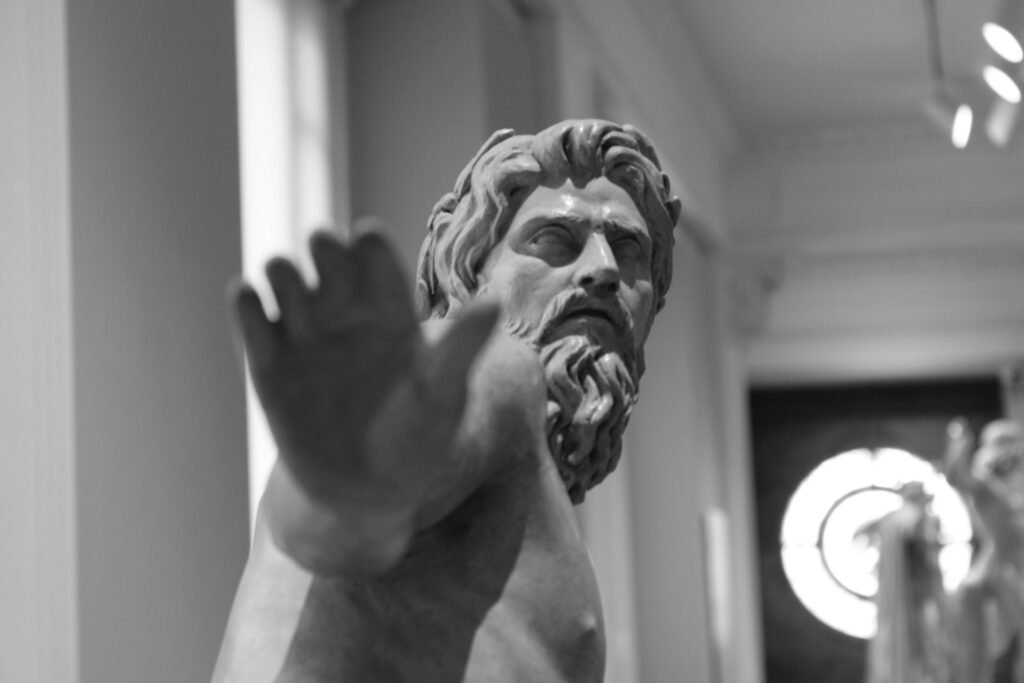Our genitals are such an important and sensitive part of our bodies. So it’s not surprising that keeping them healthy was as important in antiquity as it is today.
Some ancient ideas about our genitals, and ways of caring for them, may make us wince, and certainly wouldn’t be recommended today. But one attitude remains.
At least one ancient doctor stressed the importance of people overcoming any embarrassment talking about their genitals to seek medical attention for any concerns.
But medical writers, especially doctors, didn’t hold back. They had plenty to say about how genitals work and how to care for them. Here are their top five topics and tips.
1. How do genitals work? Doctors explained
The Greek physician Soranus (2nd century AD) wrote the book “Gynaecology” in which he described diseases and their treatment. He wrote: “The vagina […] is a sinewy membrane, almost as round as the intestine, comparatively wide inside, comparatively narrow at the external end; and it is in the vagina that intercourse takes place […] those parts which lie outside of it and are visible are called ‘labia,’ situated as if they were the lips of the vagina. They are thick and fleshy […]”
Writers also tried to explain how the genitals worked.
For example, the unknown author of the treatise On Generation (perhaps late 5th century BC) explained the function of the penis, and semen production:
“Vessels and cords from the whole body lead to the penis, and these, as they are gently rubbed, warmed, and filled, are befallen by a kind of tickling sensation, and from this pleasure and warmth arise in the whole body. As the penis is rubbed and the man moves, the moisture in his body is warmed, turns to liquid, is agitated by his movement, and foams up […]”
2. How to manage periods? Avoid gymnastics
Ancient physicians said much more about everyday care of women’s genitals than men’s. This was likely because they understood the physical challenges brought on by the menstrual cycle and childbirth.
Soranus recommended that women should rest or engage in moderate activities during their periods, advising against bathing especially on the first day.
Doctors acknowledged the need for special attention to be given to women at different stages of their lives.
For example, Soranus suggested that girls awaiting their first period should take slow walks, avoid strenuous activities, receive massages, take daily baths, and engage in reading to divert their minds.
Similarly, women approaching menopause were advised to take precautions to prevent menstruation from stopping suddenly, with Soranus recommending similar activities as for girls awaiting their first period to avoid harm from abrupt changes.
In terms of sexual intercourse, Soranus believed it was healthiest to abstain from sex unless the intention was to conceive, as he believed it posed more risks to women’s health than to men’s.
Plutarch emphasized the importance of not feeling embarrassed to consult a doctor, even if it involved discussing sensitive topics related to genital health.
Ancient medical texts contained various treatments for conditions affecting the genitals, such as priapism, which Galen treated with laxatives, baths, and fasting.
Aspasia recommended sitz baths and metallic suppositories for treating tears of the uterus, cautioning against surgical or drug interventions that could lead to inflammation.
Pliny the Elder mentioned a folk remedy involving pounded goat’s-milk cheese for carbuncles of the genitals.
Ancient physicians also provided detailed instructions on surgical procedures, such as Celsus’ guide for correcting phimosis of the penis through a specific surgical technique.


